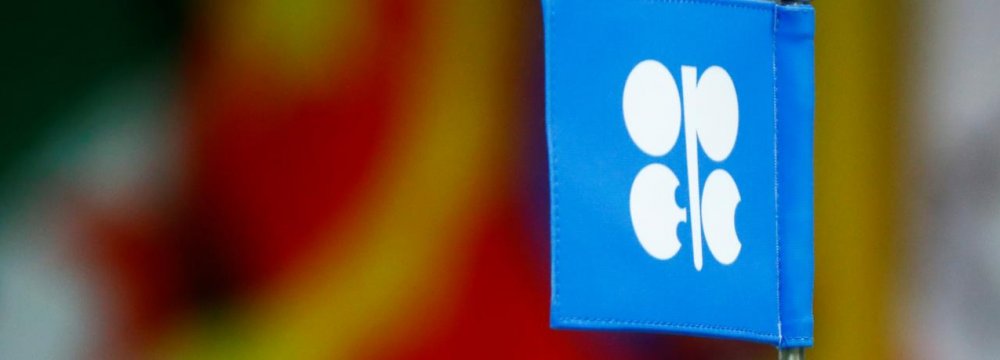
OPEC May End Supply Cuts Prematurely as Prices Rise

As the producer group gears up for a meeting with its partners to review strategy in Muscat, Oman, this weekend, there are growing expectations that the deal will be phased out early, Bloomberg reported.
The "probability is growing" that the accord may conclude before the end of the year, said Harry Tchilinguirian, BNP Paribas SA’s head of commodity strategy.
"Discussions around an early exit are likely to emerge at the next OPEC meeting in June," he said.
"If Brent is still trading around $60 a barrel and oil inventories are close enough to OPEC’s five-year average," the deal may be phased out informally by nations gradually weakening their compliance with production cuts, Tchilinguirian added.
It would be prudent to expect OPEC members will start cheating given higher oil prices, said Energy Aspects Ltd.’s chief oil analyst, Amrita Sen.
Other analysts predict a more formalized unwinding of the cuts.
"I do not think the deal per se will end" as inventories near the five-year average, said Bjarne Schieldrop, chief commodity analyst at SEB AB.
The Declaration of Cooperation—the 2016 accord that first established the group of 24 oil producers—will still stand, but be modified to allow for production cuts to gradually unwind from mid-2018, he said.
Giovanni Staunovo, commodity analyst at UBS Group AG, expects a similar outcome. Citigroup Inc., whose data show that global oil stockpiles are already back in line with the five-year average, predicting a summer agreement to ramp up production.
The oil producers themselves say they are sticking to the plan. While Russia’s Energy Minister Alexander Novak told reporters on Jan. 12 that the meeting in Oman could include discussion of mechanisms for gradually exiting the cuts, four days later he affirmed that the pact should continue.
Ministers from the UAE, Iraq and Kuwait also insisted there is no need to change tack.


Trump weighs using $2 billion in CHIPS Act funding for critical minerals

Codelco cuts 2025 copper forecast after El Teniente mine collapse

Electra converts debt, launches $30M raise to jumpstart stalled cobalt refinery

Barrick’s Reko Diq in line for $410M ADB backing

Abcourt readies Sleeping Giant mill to pour first gold since 2014

Nevada army depot to serve as base for first US strategic minerals stockpile

SQM boosts lithium supply plans as prices flick higher

Viridis unveils 200Mt initial reserve for Brazil rare earth project

Tailings could meet much of US critical mineral demand – study

Kyrgyzstan kicks off underground gold mining at Kumtor

Kyrgyzstan kicks off underground gold mining at Kumtor

KoBold Metals granted lithium exploration rights in Congo

Freeport Indonesia to wrap up Gresik plant repairs by early September

Energy Fuels soars on Vulcan Elements partnership

Northern Dynasty sticks to proposal in battle to lift Pebble mine veto

Giustra-backed mining firm teams up with informal miners in Colombia

Critical Metals signs agreement to supply rare earth to US government-funded facility

China extends rare earth controls to imported material

Galan Lithium proceeds with $13M financing for Argentina project

Kyrgyzstan kicks off underground gold mining at Kumtor

Freeport Indonesia to wrap up Gresik plant repairs by early September

Energy Fuels soars on Vulcan Elements partnership

Northern Dynasty sticks to proposal in battle to lift Pebble mine veto

Giustra-backed mining firm teams up with informal miners in Colombia

Critical Metals signs agreement to supply rare earth to US government-funded facility

China extends rare earth controls to imported material

Galan Lithium proceeds with $13M financing for Argentina project

Silver price touches $39 as market weighs rate cut outlook

















